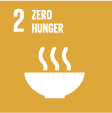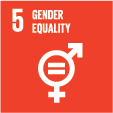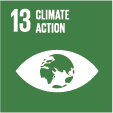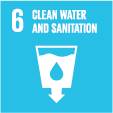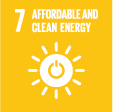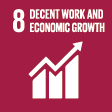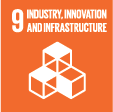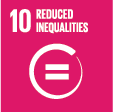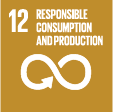OUR IMPACTFUL PROJECTS TO IMPROVE NUTRITION
MOZAMBIQUE
Creating sustainable infrastructure and income opportunities to build women's capacities
WHY MOZAMBIQUE?
High chronic malnutrition rates:
- Mozambique has the 5th highest prevalence of chronic malnutrition in Africa, with 42% of children under 5 years of age affected: That is over 2 million children who cannot reach their potential.
- Malnutrition is exacerbated by high susceptibility to climate shocks (cyclones, floods and droughts), in addition to moulds and pests due to which +30% of crops are lost.
- Mozambique loses 11% of its GDP every year because of malnutrition: These losses correspond to the cumulative impact of malnutrition on health, education and productivity.
Women do not have opportunities to be self-sufficient:
- 40% of girl under the age of 18 are pregnant forcing them to unwillingly quit school as early as 3rd grade.
- Since women have few income-generating activities, they have no control on the family expenses.
Project Partners
World Food Programme : Project lead
The Chemba District Services for Economic Analysis (SDAE) and the District Health Authorities (SDSMAS) : local authorities supporting the project
SDGs supported by the project
PROJECT OVERVIEW
Accessing nutritious food in the Chemba region can be a challenge to mothers and children due to limited availability, climate shocks or lack of money to purchase foods that are rich in nutrients. This is why we support them in planting climate-resilient seeds (orange fleshed sweet potato and cassava), and creating vegetable gardens and fruit orchards, packed with vitamins and minerals. Women are also provided with post-harvest tools and training on how to store produce to best retain its nutritional value, and make an income from surplus, thus empowering them. Women are also trained on how to fight early marriage – which is widespread in Mozambique.
How will we improve nutrition?
- Strengthen and expand the post-harvest techniques to better preserve and store perishable foods
- We provide technologies such as improved solar dryers to better preserve and store perishable foods
- Ensure income-generating and sustainable production to allow mothers to invest more money into their children's nutrition, health, education
- We train women on business management techniques to commercialize production from surplus of dried foods and on financial literacy to facilitate their access to credit
- Accelerate the training on social and behaviour practice
- We organize interactive radio shows about successful stories (on feeding practices, gender norms) for sustainable positive change in the community
Where is our project?
Mozambique, Sofala Province, Chemba District, Mulima (49 villages)
Project Gallery

GET INVOLVED
BECOME A PARTNER OF UNITLIFE TO INVEST IN A BRIGHTER FUTURE OF THE NEXT GENERATION
Partner: World Food Programme
Africa

